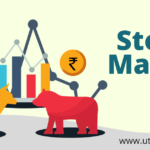When a company sold its shares for the first time is called Initial Public Offering(IPO). It is a primary market activity. This happens when a company wants to be listed on the stock exchange.
They offer their shares to the public and in exchange for money i.e known as share value. In this process public directly take shares from the company and later on its started trading on the stock market.
Table of Contents
Why Company brings an IPO?
- To expand their business
- To increase their capital
- For diversification
- To enhance the public image or market reputation
- To bring exposure
- To pool funds
- On Public Demand
- To earn capital returns and more profit
- Increase their credibility
- True Value assessment
Types of Initial Public Offering (IPO)
There are two types of IPO that are :
Fixed price issue
- In this type, share prices are fixed, investors know the price at which shares are going to be allotted.
- The company fixed the share price and offers investors to purchase the shares at that fixed price.
Book Building issue
- In this type, share prices are not known to investors.
- The company gives a price band and lets investors decide the price of the stock.
- The price band has a floor price and an upper limit.
- Price at which company received a maximum application that price is been chosen for the share.
- Investors bid on the price when IPO opens and on a listing day, the actual share price is known.
- Not everyone gets the share allotment.
- In case of oversubscription, shares are allotted on a Pro-rata basis/proportionate basis.
- IPO remains open for a maximum of 10 days
Process of Initial Public Offering(IPO)
In India IPO process can take 8-9months, steps are as follows:
- The company appoints underwriters or investment bankers. They carry out IPO on the company’s behalf.
- Underwriters will prepare a draft prospectus, called a red herring prospectus(RHP), and other registration documents.
- They submit these documents to SEBI
- SEBI will verify all the documents and tell if any alteration is required.
- After SEBI approval of all the documents and RHP, file an application to the stock exchange.
- An IPO date is fixed when the IPO will open to bid and till when it will remain open.
- The listing data is fixed, the date when the share will trade on the stock market for the first time.
- After, Stock market approval, the company creates a buzz about their listing, so that more people will get to know and subscribe to their issue.
Important things about IPO
- This is a Primary market activity, It is the first time when securities were issued in the stock market.
- All the company follows BookBuilding Process because it is convenient and investors decide the price of the share.
- IPO must subscribe 90%, If not subscribe company have to refund all the money and the subscription will cancel.
- Shares are also issued at a discount when shares are issued at price lower than the face value.
- Shares are also issued at a premium when shares are issued at price more than the face value.
- When you do not get an allotment of any securities, your money will be refunded to your bank account.
- When you apply for the IPO your money does not debit from the account till you get any allotment, your money is blocked in your account.
FAQs
1] Is BSE, NSE listing process is different?
No, listing processes for both are the same, but the company has to file applications separately on both exchanges.
2] What is a red herring prospectus?
It is the document that the company files with SEBI, mentioning information about why they want to issue IPO and other company details.
3] What is a Book Building Issue?
This is a process where an investor decides the share price and investors’ demands are recorded on a daily basis till the time IPO is opened.
4] What is the maximum period during which IPO remains open?
The maximum days for which IPO remained open is 10 days.
5] What is the primary market?
A market where securities are brought and sold for the first time to know more click here.






